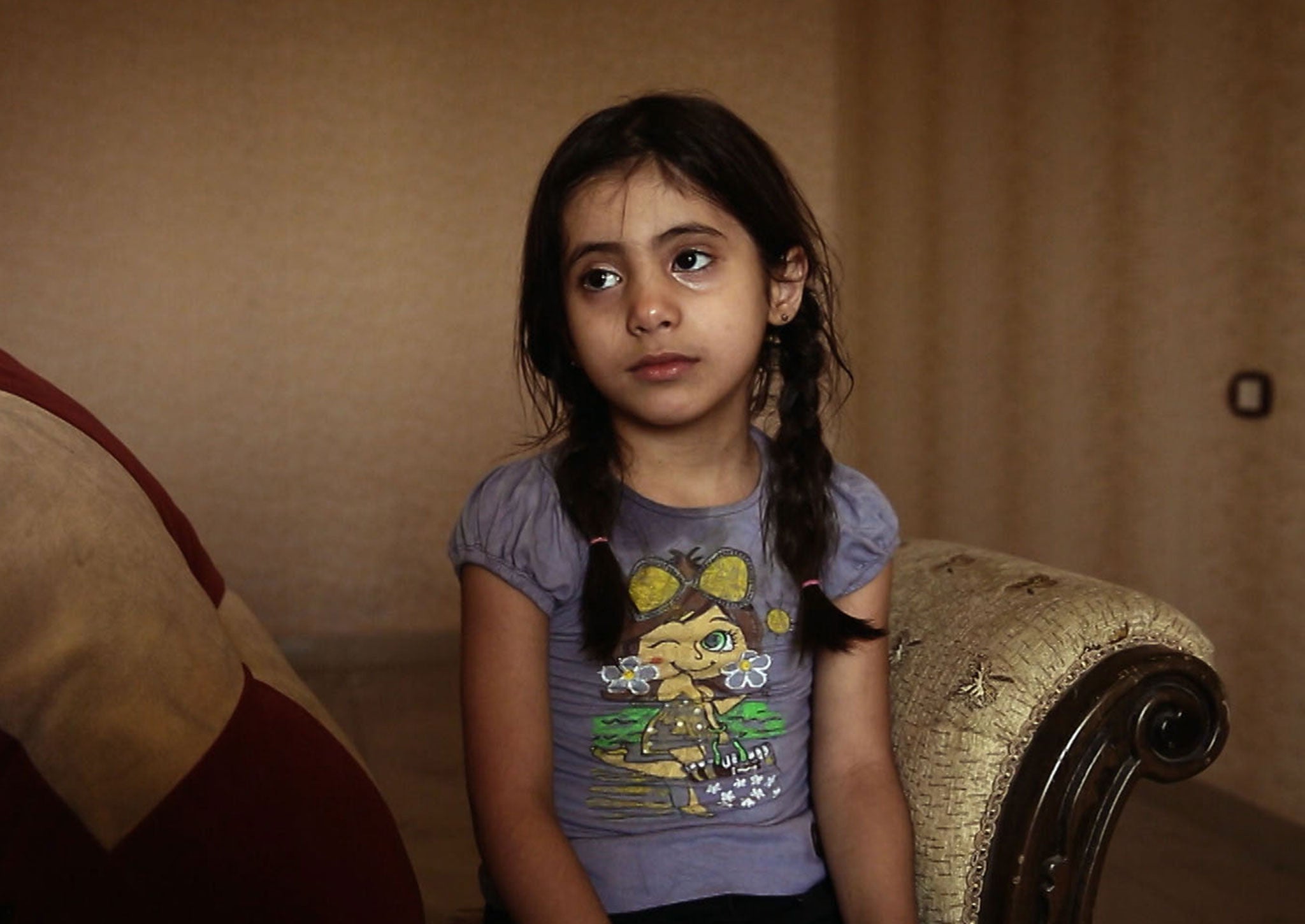Rory Peck Awards Features Finalist: Marcel Mettelsiefen
Mettelsiefen has been nominated for Children on the Frontline, a look at the Syrian children caught up in the country's civil war

Your support helps us to tell the story
From reproductive rights to climate change to Big Tech, The Independent is on the ground when the story is developing. Whether it's investigating the financials of Elon Musk's pro-Trump PAC or producing our latest documentary, 'The A Word', which shines a light on the American women fighting for reproductive rights, we know how important it is to parse out the facts from the messaging.
At such a critical moment in US history, we need reporters on the ground. Your donation allows us to keep sending journalists to speak to both sides of the story.
The Independent is trusted by Americans across the entire political spectrum. And unlike many other quality news outlets, we choose not to lock Americans out of our reporting and analysis with paywalls. We believe quality journalism should be available to everyone, paid for by those who can afford it.
Your support makes all the difference.The Rory Peck Awards celebrate the dangerous and invaluable work of freelancers around the world. This year's event will be hosted on November 19 at the BFI Southbank. To find out more click here.
German freelance photographer and filmmaker Mettelsiefen has been nominated for his film, Children on the Frontline, which gives a voice to the children caught up in Syria’s civil war.
Raised in Spain and Germany, Marcel started work as a photographer when he left school and later trained as a doctor. He was a Rory Peck Finalist in 2013 for his first film, Agony in Aleppo.
From Marcel Mettelsiefen:
"I’ve been covering events in Syria since the uprising started in March 2011. I have made around twenty trips, building a solid contact list of Syrian activists who I could trust. In August 2013 I returned to Aleppo. I had previously made a Channel 4 news film about a young boy called Mohammed, who worked in the city’s hospital.
When I met Mohammed I realized that some children in Syria had been playing a special part in the movement. At a very young age they were taking responsibility for very grown up things. The myth of how the revolution started is that fourteen children in Dera’a who painted political graffiti got arrested and tortured. Some were killed by the regime. So I was interested in the fact that these children were taking a leading role and weren't just victims. I wanted to unpack that and try to understand it.
I stayed in the rebel-controlled part of Aleppo for ten days during Ramadan, 2013 doing research and some filming. I found 12-year Aboude and his older brother Abu Mariam in the crowded market area of Bustan al-Qasr, near to the regime checkpoints.
Aboude has the face of a ten year old and the political mind of a grown up. He is a singer and had become a figurehead for the revolution in Bustan al-Qasr, leading demonstrations and protests. He is still a respected member of the community, with an important role as a representative if his neighbourhood - people listen to him. But he’s not unusual. Syrian society is desperate to find strong characters to lead them, and the young are filling these roles.
My second trip was a month later. I knew the leader of a rebel Katiba from a previous trip. His name was Abu Ali and I remembered the impressive environment of the Salah al-Din neighbourhood where he lived. It’s right on the frontline and the atmosphere is totally different to the noisy, hectic area that Aboude is from. It is full of bombed out, empty building and sniper alley, and totally silent. I asked Abu Ali if he knew of any children still living in the neighbourhood. He said the only children living there were his own and I was very welcome to stay and film with them. When I met thirteen year old Helen with her two younger sisters and brother, I immediately knew I found what I was looking for.
It was incredibly open minded of Abu Ali to let me film with his family. Fourteen is a very sensitive time for a Muslim girl and normally I wouldn’t have been allowed to film with Helen or her mother. But over the next three days I lived and filmed with them. I think Abu Ali was tired of the western media focusing on the radical movement. He was ready to open up.
Helen was obviously in charge of the kids. She answered my questions in such a mature way. But she was also very much a child, playing games with the others just metres from the frontline. This has become the normality of their daily life, but its also completely absurd.
People have asked me why Abu Ali can be so selfish and cruel to risk the lives of his children. But he desperately loves them. I am German. My parents are from the so-called 1968 generation who started to ask why their parents didn’t stand up to the Third Reich. So it was interesting for me to see Abu Ali fight for a cause that he believed was bigger than himself and his own family. This is the complexity of being human. He had been placed by destiny to make this decision – one that, thankfully, most of us will never have to make.
But Abu Ali has since been killed and the revolution has gone to hell.
The rest of the family are still in Aleppo. I have organized a foundation to give them some money every month. And I have worked hard on getting them a solid refugee status in Germany. I hope to bring them here soon."
Join our commenting forum
Join thought-provoking conversations, follow other Independent readers and see their replies
Comments